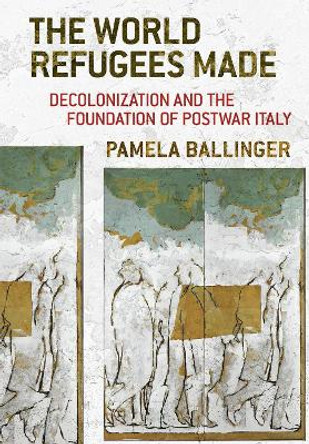Description
This is a wonderful book, beautifully written and painstakingly researched. Pamela Ballinger has crafted a work that will stand on its own for years to come. Her prose is lively, at times lyrical, and conveys the rich complexity of identity, memory, and loss in contemporary contexts marked by the traumatic legacy of violence. The interplay between literary sources, social science literature, popular cultural registers, and personal accounts, is delightful while sharp and analytically clear. -- Donald Carter, Johns Hopkins University This is a richly rendered narrative ethnography that brilliantly interleaves the fraught stories of people living across the shifting borders of Italy, Croatia, and Slovenia. Its most significant contribution lies in how it creates a distinctive space for ethnographic inquiry whereby the monumental historical and cultural transformations that have unfolded across the Julian March are manifest as intimate human struggles. Ballinger achieves this with intellectual rigor, candor, and humanity. -- Douglas R. Holmes, University of Otago, New Zealand History in Exile is a significant contribution to our understanding of a little-known chapter in the development of Balkan identities in relation to Western Europe. Ballinger's meticulous research and her ability to maintain a balanced distance from all the parties concerned will make this work a major addition to the literature. The writing is fluent and engaging, is unincumbered by unnecessary jargon, and conveys complex situations with lucidity and empathy. -- Michael Herzfeld, Harvard University
About the Author
Pamela Ballinger is Assistant Professor of Anthropology at Bowdoin College.
Reviews
"Theoretically sophisticated, ethnographically detailed, and historically informed, Ballinger's account makes a valuable contribution to the 'anthropology of borders.' At the same time, it offers intelligent commentary on a variety of important topics in contemporary anthropology... History in Exile, therefore, is essential reading for students and scholars in the humanities and social sciences who are interested in understanding the lives of people who have faced ethnic conflict and violence in the former Yugoslavia, Palestine, Kashmir, and other frontier zones around the world."--Loring M. Danforth, Slavic Review "Pamela Ballinger has written a challenging and fascinating study of Italian migration from Istria in the wake of World War II. Exploiting the techniques of anthropology and history, linguistics and literary/cultural studies, Ballinger explains both the complex reasons for this process as well as the ways in which it has been interpreted and used over the past fifty years, both by the majority that left Yugoslavia and by the minority that stayed behind."--Andrew Wachtel, American Historical Review "This book [is] disarming in its sincerity, inspiring in its humanism, and compelling in its sophistication... Ballinger's ambitious and deftly woven analysis serves as a reminder of the anthropological project's vitality."--Keith Brown, Journal of the Royal Anthropological Institute "Pamela Ballinger ... analyze[s] the role of living memory in the preservation of community identity... Making use of an anthropological methodology that resembles that of oral history, she has collected, transcribed, and analyzed the memories of her informants not so much to determine what actually happened in Istria after World War II, but rather to explore how memory has functioned historically to preserve, commemorate, distort, and mythologize the past."--Larry Wolff, Journal of Modern History History in Exile is a formidable piece of scholarship that will enrich the ethnography of Europe and the literature on memory."--Leyla Neyzi, Anthropological Quarterly "Pamela Ballinger has earned her status as an analyst of the Istrian Peninsula by the breadth and detail of her fieldwork and by her ability to excavate the historical complexity of the region and then situate it outside the parochial framework that has in general hindered local and international commentary on that area... [S]he has been able to open up this part of the so-called Balkans to Europe (and vice versa) empirically and theoretically."--Glenda Sluga, Journal of Modern History
Book Information
ISBN 9780691086972
Author Pamela Ballinger
Format Paperback
Page Count 352
Imprint Princeton University Press
Publisher Princeton University Press
Weight(grams) 510g






